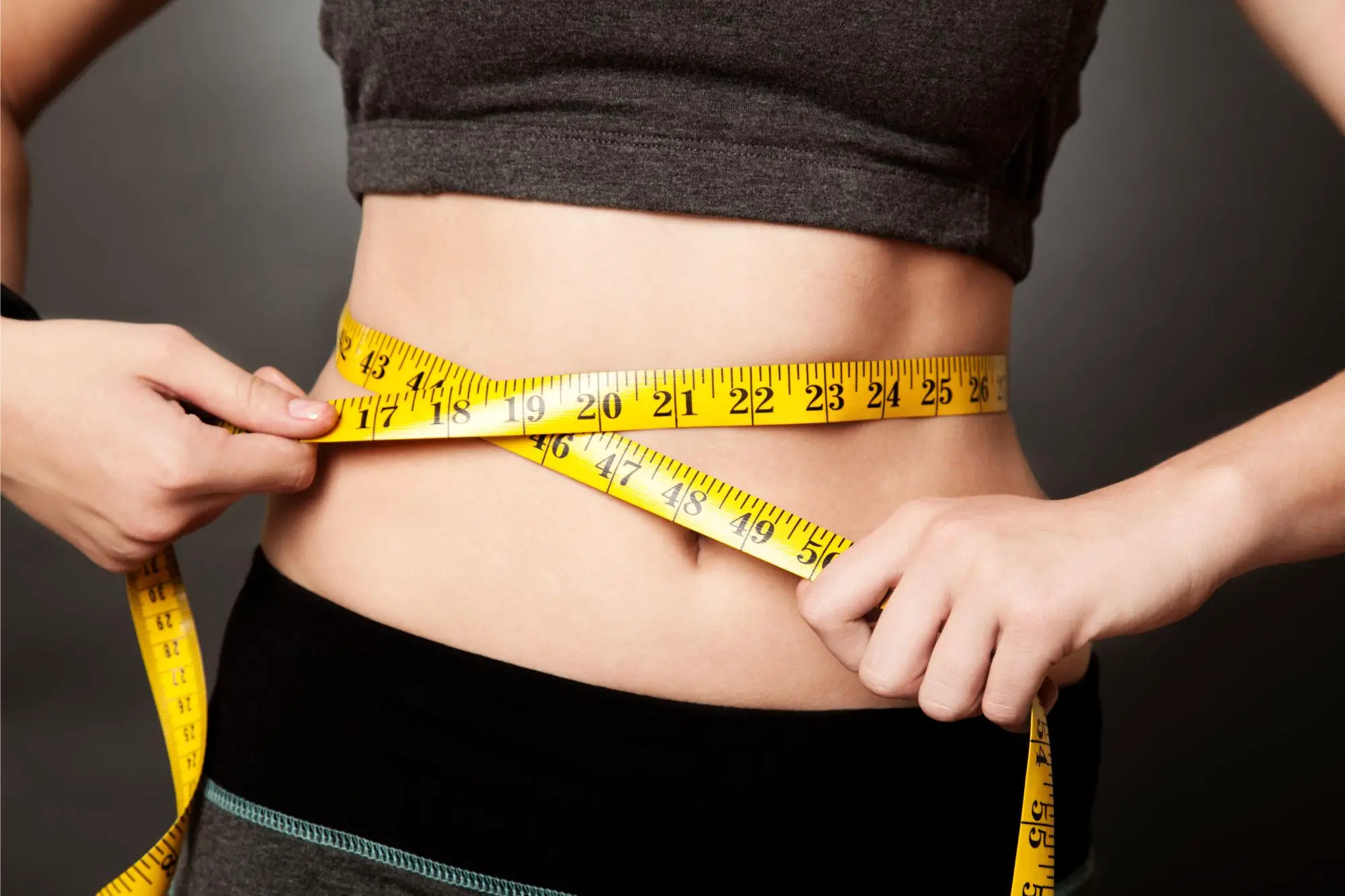


Losing weight quickly can be a goal for some individuals, especially when there is a special event or occasion approaching. Achieving significant weight loss within a short timeframe requires a focused and disciplined approach. While it is important to prioritize sustainable and long-term weight loss methods, some individuals may have specific short-term goals. This article presents a fast weight loss diet plan that aims to help you lose 5kg (11lbs) in just 5 days. It is essential to approach such plans with caution and consult a healthcare professional before making any drastic changes to your diet or exercise routine.
Obesity is a chronic condition characterized by an excessive accumulation of body fat, which can have negative effects on overall health. It is a complex issue influenced by genetic, environmental, behavioral, and socioeconomic factors. However, diets play a crucial role in managing and preventing obesity. Here’s an overview of different types of diets commonly used for weight management:
Before embarking on any weight loss journey, it is crucial to set realistic expectations. While losing 5kg in 5 days may be achievable, it is essential to understand that the majority of this weight will likely come from water weight and not fat loss.
To create a calorie deficit, you need to reduce your daily calorie intake. However, extreme calorie restriction is not recommended as it can be detrimental to your health. Aim for a moderate reduction of 500-800 calories per day, primarily by choosing nutrient-dense, low-calorie foods.
A well-balanced diet is key to providing essential nutrients while promoting weight loss. Ensure your meals include a combination of lean proteins, complex carbohydrates, and healthy fats. Proteins help in building muscle mass and increasing satiety, while complex carbs provide sustained energy. Healthy fats aid in nutrient absorption and hormone regulation.
Fiber-rich foods are beneficial for weight loss as they promote feelings of fullness and aid in digestion. Include fruits, vegetables, whole grains, and legumes in your diet to boost fiber intake. These foods are also generally low in calories, making them a healthy addition to your weight loss plan.
Proper hydration is essential during any weight loss program. Drinking an adequate amount of water helps control appetite, aids in digestion, and supports overall well-being. Aim to drink at least 8-10 glasses of water daily to stay hydrated and support your weight loss efforts.
Incorporating exercise into your weight loss plan can enhance results and improve overall health. Engage in moderate-intensity aerobic activities such as brisk walking, jogging, or cycling for at least 30 minutes per day. Additionally, include strength training exercises to build lean muscle mass, which can boost your metabolism.
Controlling portion sizes and practicing mindful eating can contribute to weight loss. Use smaller plates and bowls to help manage portion sizes and avoid overeating. Pay attention to your body’s hunger and fullness cues, and eat slowly to savor the flavors and feel satisfied with smaller amounts of food.
While fast weight loss diet plans may promise quick results, it’s important to be aware of potential side effects that can occur. Rapid and extreme changes to your diet and lifestyle can have adverse effects on your body. Here are some potential side effects to consider:

Check out some practical ways to lose 5 kg weight healthily.
A simple solution is incorporating more fruits and green vegetables into your meals. Replacing high-calorie, low-nutrient foods with fruits and vegetables can help reduce overall calorie intake and enhance weight loss while keeping the nutrient profile of the food high. In addition, many fruits and vegetables are fibre-rich which can add to your satiety while creating a calorie deficit.
Fibre also slows down the digestion of food, which helps regulate blood sugar levels and prevents overeating. In addition, they are also rich in minerals, vitamins, and antioxidants that are important for overall health. By consuming these nutrient-dense foods, you may feel more satisfied and less likely to turn to calorie-dense, nutrient-poor foods.
Old Indian wisdom suggests sitting cross-legged on the floor and eating without distraction. It results in slow eating and chewing food well. Therefore, one becomes more aware of the body’s fullness signals and eats less.
Chewing food slowly improves digestion by breaking down food more effectively in the mouth. As a result, one digests food better, which can reduce bloating and other digestive discomforts. In addition, it can also increase the absorption of nutrients from food. When thoroughly chewed, food is broken down into smaller pieces. That makes it easier for the body to extract and absorb nutrients. As a result, the weight stays in check when the digestive system works at its optimum level.
Over time, consuming too many refined and fast foods can lead to weight gain and obesity. On the other hand, consuming fewer refined carbs and reducing the quantity, like those found in bread and candy, aid in weight loss.
Many refined, high-carb processed foods are high in calories but low in both macro and micronutrients. Therefore, avoid high-carb, processed foods such as cakes, cookies, and potato chips. Also, cut back on alcohol, sweets, and sugar-sweetened beverages.
Due to processing, these foods lack essential nutrients such as fibre, vitamins, and minerals. Therefore, consuming these foods in excess can lead to nutrient deficiencies, negatively impacting overall health. Also, refined high-carb processed foods can cause a rapid increase in blood sugar levels due to their high glycemic index. As a result, it can induce hunger and cravings for more unhealthy foods.
Consuming large amounts of refined, high-carb processed foods can also lead to insulin resistance. It is a condition in which the body’s cells become less responsive to insulin. Eventually, this can lead to several health problems like cardiovascular diseases, obesity and type 2 diabetes.
Starting small and building momentum is essential to embark on a weight loss journey. Set achievable goals and gradually increase them as you see progress. Resist the urge to jump into a strict diet and exercise regime immediately. Rather than diving in headfirst, start by setting realistic objectives and gradually increase the intensity and difficulty as you see progress.
Remember, sustainable weight loss is a steady and gradual process, not a quick fix. For example, make healthy habits like stopping sugar and walking 30 minutes daily. Then, slowly keep adding healthier habits like eating fewer carbs and adding more fruits and vegetables.
Try to replace sugary drinks with glasses of water and aim to consume at least 8-10 glasses of water every day. Drinking enough water is a simple and effective way to detoxify your body. Also, be mindful of your alcohol consumption and drink it in moderation since it can hinder weight loss efforts.
Drinking water can be beneficial for weight loss in multiple ways. First, it can make one feel full, which reduces the amount of food they eat. Second, water can increase metabolism, resulting in more calorie burn. Third, replacing high-calorie beverages like soda or juice with water can lower overall calorie intake. Lastly, drinking more water can help reduce water retention and bloating caused by dehydration.
Daily exercise is a crucial factor in weight loss and can help keep the weight off for good. So, make exercise a daily habit to stay fit and healthy. Exercise can be an effective tool for weight loss for several reasons. First, it can increase your metabolism, which is how your body burns calories. Also, it means your body will continue burning calories even after exercising. As a result, it will help you lose weight over time.
Exercise can also help manage appetite and reduce overall calorie intake. Studies show exercise can also reduce stress, which can trigger overeating. Regular exercise can improve overall health, which can help with weight loss. In addition, exercise can lower the risk of chronic diseases like heart disease, stroke and diabetes. Of course, exercise with a healthy diet and lifestyle changes provide the best results.
If you aim to shed some pounds, consider the power of quality sleep. Prioritising 6-8 hours of sleep is essential to managing weight and improving mood and overall well-being. Study shows that lack of sleep leads to more hunger resulting in more calorie intake, a longer window to eat and a tendency to snack more. Also, sleep deprivation makes one feel exhausted during the day, reducing the propensity to exercise.
Is Muskmelon Good For Weight Loss?
A Scientific Look At Weight Loss Medications: Potential Of Weight Loss Medications
Weight Loss Drinks: An Effective Addition To Your Healthy Lifestyle
How Many Calories In A Day For Weight Loss: A Comprehensive Guide
Fast Weight Loss Diet Plan to Lose 5kg in 5 days is an ambitious goal that requires a disciplined approach. While this fast weight loss diet plan may provide initial results, it is crucial to remember that sustainable weight loss is best achieved through long-term lifestyle changes. Consult with a healthcare professional before starting any extreme diet plan, and prioritize your overall well-being throughout your weight loss journey.
A. Losing 5kg in 5 days with a diet plan is highly unlikely and can even harm your health. Rapid weight loss can lead to muscle loss, dehydration, and nutritional deficiencies. Hence, aiming for a slow and steady weight loss of 1-2 pounds per week is better. In addition, you must target achieving it through a balanced diet and regular exercise. Consulting a healthcare professional can also help determine a safe and effective weight loss plan.
A. Adding more fruits and green vegetables to your diet is one way to lose weight. You can also incorporate beans and other legumes. These can include lentils, black beans, kidney beans, and others. These meals are high in protein and fibre, helping to promote satiety.
A. Usually, many experts believe losing 1-2 pounds (0.45-0.9kg) per week is healthy and safe. However, losing too much rapidly could put you at risk of many health issues. It may include muscle loss, gallstones, nutrient deficiencies, and a drop in metabolism. It may also result in a reduction in blood pressure, which can be dangerous.
A. According to experts, your food consumption should provide 500-1000 calories less than your total weight-maintenance calories. You can expect to lose 1-2 pounds weekly with this calorie intake.
A. Yes, exercising on a fast-loss diet is OK. However, performing low-intensity exercises like walking, yoga, etc., would be better. One should refrain from starting a rigorous exercise routine during a fast weight-loss diet plan.
A. There is a very high chance of weight gain after stopping a diet plan. It is because your metabolism can slow down, and you continue gaining weight. In addition, the body may start to conserve energy and stop burning as many calories.
A. Yes, you can customize your diet plan. One of the great ways to do this is by working with registered dieticians. They can help you to customize your diet plan, help to identify nutrient gaps and suggest alternative options. In addition, they consider your dietary requirements, health goals and food preferences to develop a diet chat that works for you.
A. The fast weight loss diet plan has several side effects. It includes slowed metabolism, muscle mass reduction, dehydration and nutrient deficiencies. It also results in extreme hunger and obsessive thoughts about food. These side effects may cause difficulty in sticking to the diet.
A. One of the most popular rules of change in body fat is following an Intermittent Fasting method. It is called the 5:2 system. It implies eating a regular diet five days a week and fasting twice weekly. Alternatively, people should consume food within an 8-hour window each day and fast for 16 hours.
A. Healthy eating habits and regular exercise are some tips to achieve your weight goal with a fast weight-loss diet plan. Try to incorporate fibre-rich foods like fruits and vegetables into your diet. Also, avoid processed and high-carb foods. Furthermore, staying hydrated, drinking at least 8-10 glasses of water daily, and adequate sleep can help you lose weight.